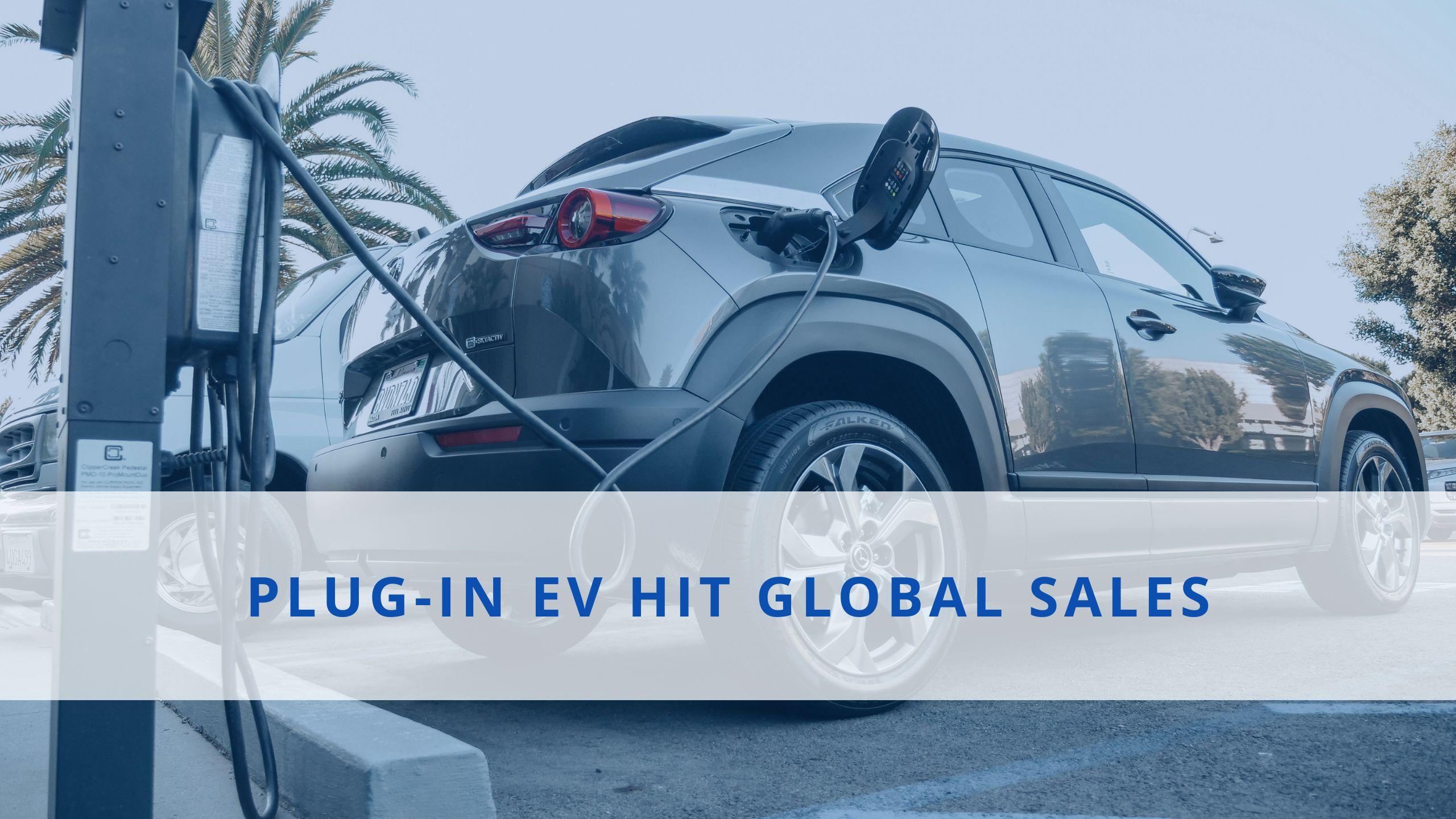Global Auto Shift: Plug-in EVs Projected to Hit 25% Sales by 2025

The global automotive industry is rapidly evolving as Plug-in EVs are expected to capture 25% of global vehicle sales by 2025. This shift represents a major transformation in how vehicles are designed, manufactured, and adopted by consumers. Rising environmental concerns, technological innovation, and government incentives are driving unprecedented growth in the Plug-in EV market. Automakers are investing heavily in production capacity, battery technology, and charging infrastructure to meet increasing demand, while consumers are embracing the benefits of sustainable and efficient transportation.
Market Trends Supporting Plug-in EVs
Multiple market trends are contributing to the rapid growth of Plug-in EVs. Increasing fuel prices, stricter emission regulations, and rising awareness of climate change are motivating consumers and businesses to switch to electric mobility. Automakers are expanding their EV portfolios, offering vehicles that cater to different segments, from affordable city cars to high-performance SUVs. Improved driving range, faster charging options, and advanced vehicle features have enhanced consumer confidence, supporting the projected 25% global market share by 2025.
Government Policies Driving Adoption
Government initiatives are key to accelerating Plug-in EV adoption. Incentives such as tax rebates, subsidies, and low-interest financing make EVs more affordable for consumers. European countries, the United States, and China are leading with comprehensive policies to encourage EV production and adoption. Low-emission zones, preferential parking, and toll exemptions for EV owners further promote electric mobility. These measures reduce barriers to entry, support the development of charging networks, and provide a regulatory framework for widespread Plug-in EV adoption.
Technological Advancements in Batteries
Battery technology has played a pivotal role in making Plug-in EVs practical and reliable. Lithium-ion batteries, along with emerging solid-state options, provide higher energy density, longer driving range, and faster charging times. Regenerative braking systems, smart energy management, and thermal optimization enhance efficiency and reliability. Charging infrastructure improvements, including ultra-fast charging stations and home solutions, address convenience concerns and reduce range anxiety. These technological advancements are vital for supporting widespread adoption and ensuring Plug-in EVs achieve the anticipated market share.
Leading Markets
China, Europe, and North America are driving the global Plug-in EV market. China maintains leadership due to strong government support and domestic production capacity. Europe is witnessing accelerated adoption as consumers respond to environmental regulations and incentives. The U.S. market is expanding with new model launches and increased production by Tesla, Ford, and General Motors. Emerging markets, such as India and Southeast Asia, are beginning to adopt EVs, contributing to global growth and positioning Plug-in EVs as a mainstream transportation option worldwide.
Role of Automakers
Automakers are central to the growth of Plug-in EVs. Legacy manufacturers are converting traditional production lines to accommodate electric vehicles, while startups leverage technology and innovation to gain market share. Tesla continues to lead in global sales, but brands like Volkswagen, Hyundai, and Mercedes-Benz are rapidly expanding their electric vehicle portfolios. Collaboration with energy providers and technology firms supports battery production, charging infrastructure, and grid integration. These combined efforts ensure Plug-in EVs meet consumer expectations for affordability, performance, and reliability.
Environmental Impact
Plug-in EVs deliver substantial environmental benefits. By reducing reliance on fossil fuels, they lower greenhouse gas emissions and improve urban air quality. Even accounting for electricity generation, EVs produce fewer emissions than internal combustion engine vehicles. As renewable energy adoption increases globally, the environmental impact of Plug-in EVs will continue to decline. These vehicles play a critical role in achieving climate targets and fostering sustainable urban transportation systems.
Charging Infrastructure Development
The growth of Plug-in EVs relies heavily on accessible and reliable charging infrastructure. Governments and private companies are expanding fast-charging networks, workplace chargers, and residential solutions. Innovations like wireless charging and vehicle-to-grid technology enhance convenience and energy efficiency. Smart charging systems optimize electricity usage and reduce grid pressure. These improvements remove a key barrier to adoption and help support the mainstream integration of Plug-in EVs across urban and rural regions.
Economic Opportunities
The rise of Plug-in EVs is generating significant economic opportunities. Investments in EV manufacturing, battery production, and charging infrastructure create jobs and stimulate innovation. Corporate fleets and logistics companies are electrifying vehicles to reduce costs and meet sustainability targets. The automotive supply chain is evolving to include renewable energy solutions, software integration, and advanced electronics. This transformation highlights the economic and industrial significance of Plug-in EVs while promoting global sustainability initiatives.
Challenges and Future Outlook
Despite rapid adoption, the Plug-in EV market faces challenges, including battery material supply limitations, high initial costs, and recycling requirements. Sustainable production methods and continued technological innovation are critical to overcoming these barriers. With growing consumer awareness, improved infrastructure, and supportive government policies, Plug-in EVs are projected to achieve 25% of global vehicle sales by 2025, establishing a foundation for a cleaner, more efficient, and sustainable automotive future.
About Us:
At BusinessInfoPro, we empower entrepreneurs, small businesses, and professionals with cutting-edge insights, strategies, and tools to fuel growth. Driven by a passion for clarity and impact, our expert team curates’ actionable content in business development, marketing, operations, and emerging trends. We believe in making complex ideas simple, helping you turn challenges into opportunities. Whether you’re scaling, pivoting, or launching a new, Businessinfopro offers the guidance and resources to navigate today’s dynamic marketplace. Your success is our commitment, because when you thrive, we thrive together.
- Art
- Causes
- Crafts
- Dance
- Drinks
- Film
- Fitness
- Food
- Spiele
- Gardening
- Health
- Startseite
- Literature
- Music
- Networking
- Andere
- Party
- Religion
- Shopping
- Sports
- Theater
- Wellness




